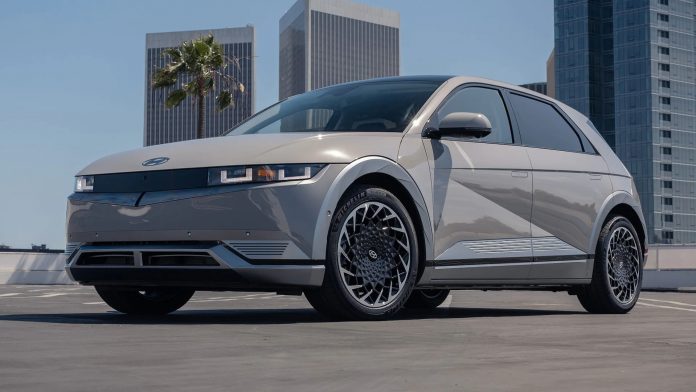Hyundai broke its monthly sales record for the IONIQ 5 over the course of July, solidifying the automaker’s small but steadily growing presence in the electric vehicle segment.
Sales of the EV increased month-over-month as well as year-over-year. Hyundai sold 4,135 IONIQ 5’s in July, a gain of roughly 92% (2,157 units) from the previous year and roughly 32% (999 units) from the month before. The electric vehicle’s successor, the IONIQ 6, began sales earlier this year and also saw improved demand. Customers purchased 1,745 units in July, compared to 1,162 in June and 222 in March, its first month of sales, an improvement of approximately 50% (583 units) and 686% (1,523 units), respectively.
The IONIQ 5 has now sold 17,776 units since the start of the year, which Hyundai notes is a 13% increase from 2022. The automaker’s sister brand, Kia, also grew its electric vehicle business in July. Its EV6 sold 1,937 units in July, a gain of 13% year-over-year. The car manufacturer is also planning the launch of the EV9, a highly-anticipated, battery-powered SUV, in the coming months.
Like other brands, Hyundai has seen demand for its electric vehicle offerings increase in the U.S. However, success in the segment has not been universal. General Motors reported a 24% decline in EV sales between the first and second quarters of 2023. Last month, credit reporting agency Experian also noted that new registrations for battery-powered cars had begun to stall for Ford, which earned recognition last year for being the No. 2 EV brand in the U.S. The market’s current top player, Tesla, has seen sales improve but is facing increased pricing pressures as it looks to boost volume through discounts. The race to electrify America’s transportation is still in its early stages, but if there is one thing automakers cannot afford, it is complacency. Although Hyundai is seeing success, it has much progress to make before it becomes a truly formidable competitor.





